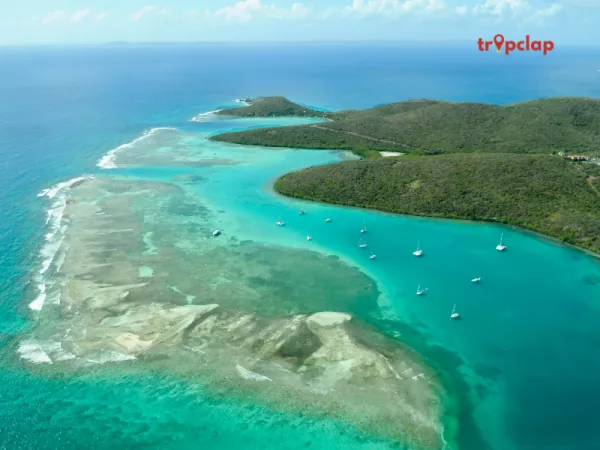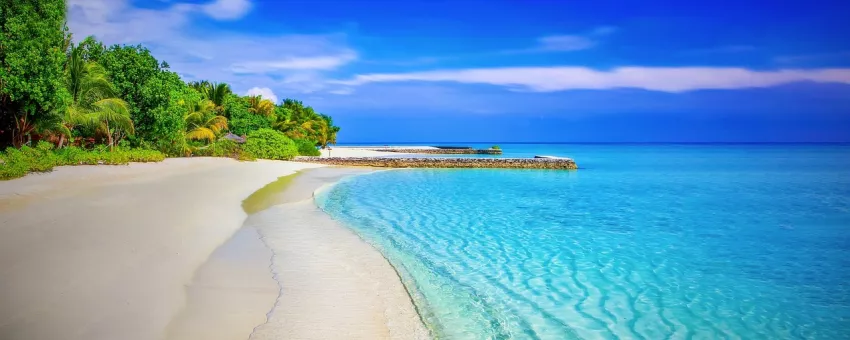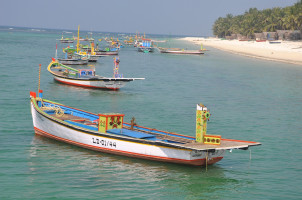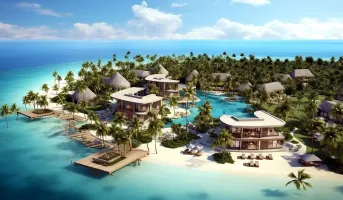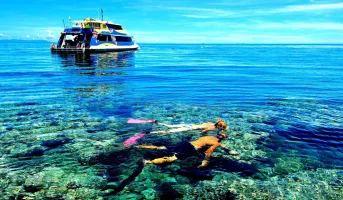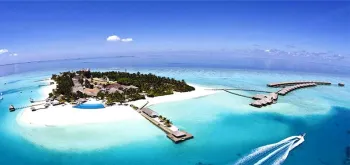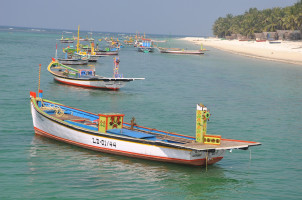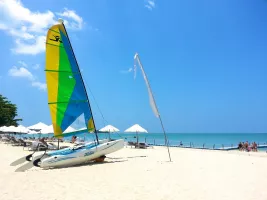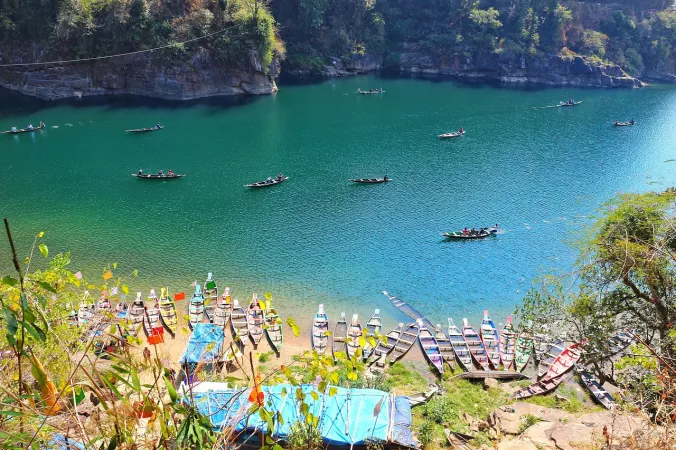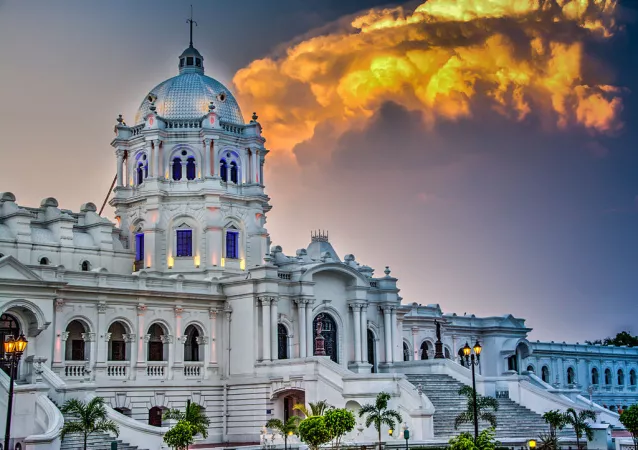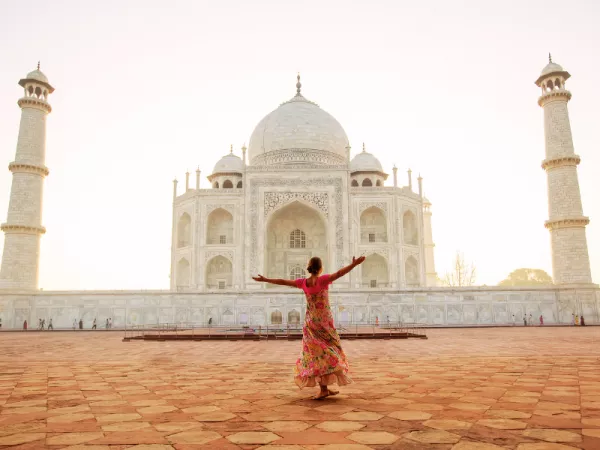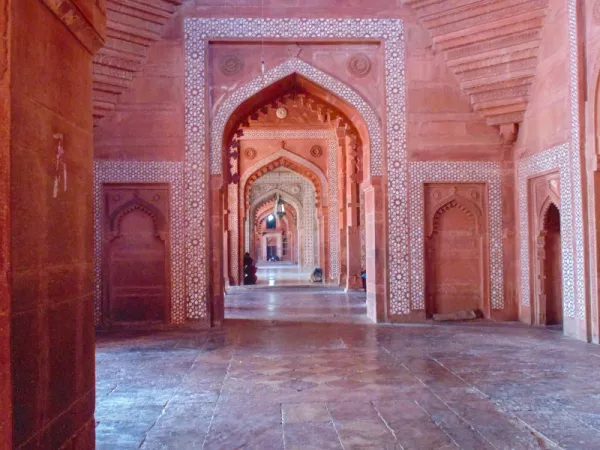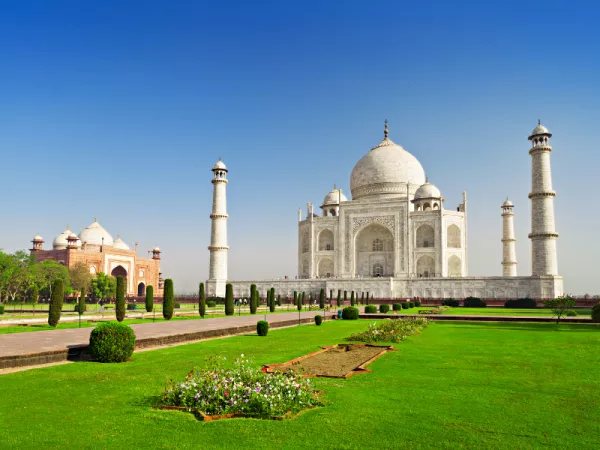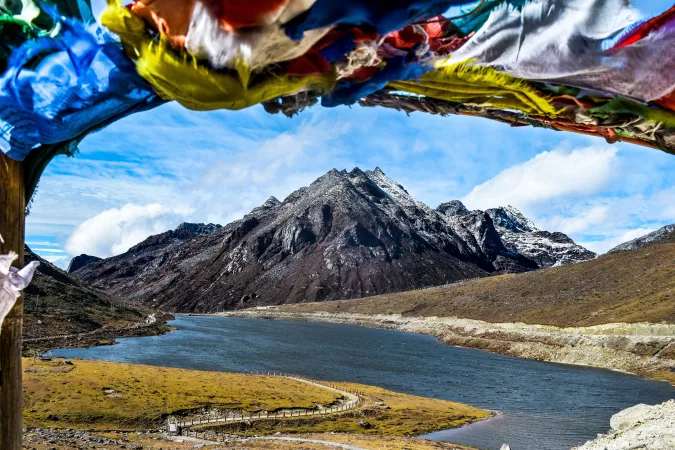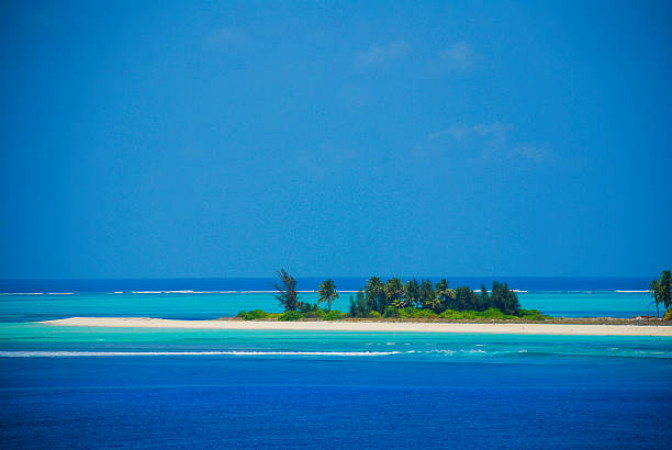
Lakshadweep
Package
18000 to 39999
18000 to 39999
Duration
5 to 7 Days
5 to 7 Days
Best time to visit
Nov-Mar
Nov-Mar
Theme
Beaches, Waterfront
Beaches, Waterfront
Lakshadweep Travel Guide
Lakshadweep, a tropical paradise in the Arabian Sea, is a group of stunning coral islands known for their pristine beaches, crystal-clear waters, and vibrant marine life. This Union Territory of India holds great historical significance as a former trading post and has a unique culture influenced by both Indian and Arabic traditions.Top Attractions in Lakshadweep
- Agatti Island - Explore the beautiful lagoons and coral reefs
- Kavaratti Island - Visit the capital with its mosques and pristine beaches
- Bangaram Island - Relax on the white sandy beaches and enjoy water sports
- Kalpeni Island - Experience the rich marine life and go for snorkeling
Lakshadweep is Famous for
Its breathtaking coral reefs and turquoise waters make Lakshadweep a popular destination for diving and snorkeling enthusiasts.Top Attractions in Lakshadweep
- Exploring the underwater world through scuba diving
- Relaxing on pristine beaches with swaying palm trees
- Indulging in water sports like kayaking and windsurfing
- Visiting traditional villages and experiencing local culture
What's Great about Travelling to Lakshadweep?
- Perfect destination for beach lovers and water sports enthusiasts
- Ideal for honeymooners seeking a romantic getaway
- Great for nature enthusiasts who appreciate marine biodiversity
What's Not So Great about Travelling to Lakshadweep?
- Limited connectivity and transportation options between islands
- Restricted access to certain areas to preserve the fragile ecosystem
- Not recommended for those seeking a bustling nightlife or shopping scene
Travel Tips for Lakshadweep
- Obtain necessary permits for visiting the islands in advance
- Respect the local customs and traditions, especially regarding dress codes
- Book accommodation and transportation well in advance due to limited availability
Important Lakshadweep trip information
- Ideal Duration: 5-7 days to explore the main islands
- Best Time to Visit: November to March for pleasant weather
- Nearby Airports and Railway Stations: Agatti Airport is the main entry point
Top 11 Places to visit in Lakshadweep
Per Person
1,00,000
*EXCLUDING APPLICABLE TAXES 4.4 Ratings
( 314 Reviews )
( 314 Reviews )
Per Person
27,990
*EXCLUDING APPLICABLE TAXES 4.9 Ratings
( 362 Reviews )
( 362 Reviews )
Per Person
27,980
*EXCLUDING APPLICABLE TAXES 4.9 Ratings
( 362 Reviews )
( 362 Reviews )
Per Person
29,500
*EXCLUDING APPLICABLE TAXES Per Person
17,500
*EXCLUDING APPLICABLE TAXES 5.0 Ratings
( 7 Reviews )
( 7 Reviews )
Per Person
18,000
*EXCLUDING APPLICABLE TAXES FAQ's on Lakshadweep
Q1: What is the best time to visit Lakshadweep?
The best time to visit Lakshadweep is from October to May when the weather is pleasant, and the sea is calm for water activities. Avoid the monsoon season from June to September due to heavy rains and rough seas.
Q2: Do I need a visa to travel to Lakshadweep?
Indian tourists do not require a visa to visit Lakshadweep. However, foreigners need to obtain a Restricted Area Permit (RAP) to enter the region, which is usually facilitated through tour operators.
Q3: What are the must-visit attractions in Lakshadweep?
Must-visit attractions in Lakshadweep include the pristine beaches of Agatti, the coral reefs of Kadmat, the lagoons of Bangaram, and the uninhabited islands of Suheli Par and Pitti.
Q4: Is Lakshadweep a safe place to travel?
Lakshadweep is considered safe for tourists. However, it is advisable to respect local customs, avoid isolated areas at night, and be cautious while swimming or participating in water sports.
Q5: What is the local currency in Lakshadweep and can I use credit cards?
The local currency in Lakshadweep is the Indian Rupee (INR). While ATMs are limited, major hotels and resorts accept credit cards. It is recommended to carry sufficient cash for smaller establishments.
Q6: What is the local cuisine like in Lakshadweep?
Lakshadweep offers a cuisine with a focus on seafood, coconut, and rice dishes. Try specialties like tuna curry, coconut-based gravies, and sweet delicacies like Aliyans (coconut pancakes).
Q7: What transportation options are available in Lakshadweep?
Transportation in Lakshadweep includes boats, ferries, and helicopters for inter-island travel. There are limited road networks, so most transportation is water-based. Bicycles are a popular way to explore the islands.
Q8: Are there any cultural norms or etiquette I should be aware of when visiting Lakshadweep?
When visiting Lakshadweep, it is important to respect the local culture by dressing modestly, removing footwear before entering homes or religious sites, and seeking permission before taking photographs of locals.
Q9: I am a travel agent. How can I buy travel leads of Lakshadweep?
Register yourself as a travel agent at agents.tripclap.com and then you can buy travel leads to Lakshadweep once your account is approved. For more details contact our support team at +91-8069186564 or support@tripclap.com
